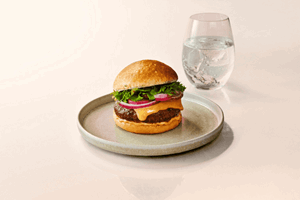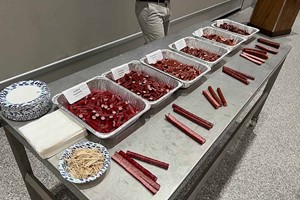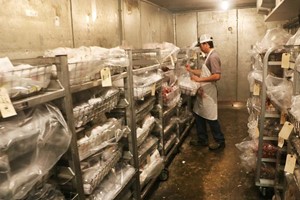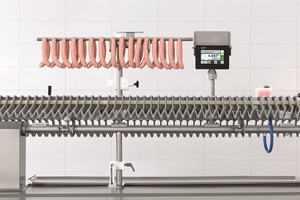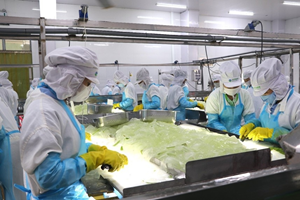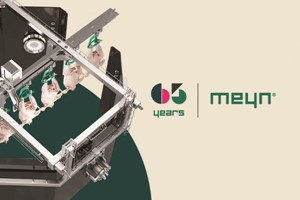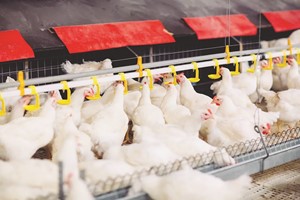Does cultivated meat have the potential to reduce the impact of traditional meat production on the environment, workers, and animals?
A recent study by the Dutch project PPP True Price: from Insight to Action reveals that by 2030, the overall social costs of cultivated meat from RESPECTfarms could be 2 to 3.5 times lower than conventional meat from dairy cows, chicken, and pork produced in the Netherlands.
The research, conducted by Wageningen Economic Research and CE Delft, employed the True Cost Accounting (TCA) method to analyze how the impact of meat production relates to the production of cultured meat and express it in euros.
Switching to cultivated meat
According to Pelle Sinke, a researcher at CE Delft, the advantage of cultivated meat relies on its more efficient conversion of feed to meat compared to animals, reducing nitrogen emissions and land use.
In addition, the use of sustainable energy can further decrease CO2 emissions during production. Moreover, the study found that the transition from conventional to cultivated meat is expected to reduce external air and water pollution costs and improve land use.
Beyond better environmental results, cultivated meat production minimizes concerns about slaughterhouse labor conditions, reducing illnesses and accidents inherent to the meat processing sector. Furthermore, the process significantly lowers external animal welfare costs by eliminating the need for slaughter. “This shift could lead to a more ethical and humane food system,” states RESPECTfarms.
But, there are also some concerns
Switching to RESPECTfarms’ locally produced cultivated meat by 2030 is also expected to increase some specific external costs related to fossil resource scarcity and water scarcity in the future, although the use of renewable energy could mitigate the dependency on fossil-derived energy.
Additionally, according to the researchers, cultivated meat has the potential to pose uncertain impacts on human health due to limited studies on its effects on diet-related health risks, such as stroke, diabetes, colorectal cancer, and lung cancer, which, on the contrary, have been extensively studied in traditional meat.
Although cultivated meat offers protein, iron, and other micronutrients if added, matching the nutritional value of conventional meat, further evaluation of human health issues is needed. Therefore, no external cost estimation could be done for this area.
Sustainable animal food
The research emphasizes that combining cultivated meat and higher shares of plant-based foods is necessary to meet future protein demands.
The current food system significantly contributes to environmental issues, food insecurity, and multiple social challenges, while the growing demand for meat worldwide exacerbates these problems.
Researcher Jonna Snoek comments, “There is no single route to a more sustainable food system. We have to go through several roads to Rome. In addition to a higher proportion of plant-based food, cultured meat offers the opportunity to make our animal food more sustainable.”
Change is a collaborative effort
RESPECTfarms aims to develop the world’s first cultivated meat farm where meat is grown directly from animal cells using short, transparent value chains. In its journey, it aims to include farmers, offering new ways to create value amid the instability of the traditional livestock sector due to its impact on the environment and animals.
RESPECTfarms shared in the announcement of the new report, “In summary, the findings from this report underscore the potential of cultivated meat as a viable alternative to conventional meat. By embracing this innovative technology, we can address pressing environmental challenges while providing a sustainable protein source for the future. The collaborative efforts of researchers, farmers, and policymakers will be crucial in realizing this vision.”
You can read more about their project in this interview with RESPECTfarms’ co-founder Florentine Zieglowski.
Methods used for the analysis
As explained in the report, the external costs were evaluated from resource extraction to the production of unpacked boneless meat. Beef cattle meat was excluded due to the lack of representative data for Dutch beef cattle.
Meanwhile, the reference product of cultivated meat was RESPECTfarms’ species-agnostic meat, using its proof-of-concept as the production reference, assuming technology development to TRL7 (Technology Readiness Level 7).
The assessment is set in a 2030 scenario where the energy used on the farms is sourced partly from photovoltaic (PV) panels on stable roofs and partly from the national energy grid, which is expected to have a higher share of sustainable energy by then.





